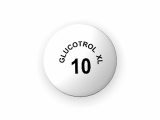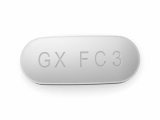Erectile function score
In today's world, sexual health is an essential aspect of an individual's overall health. Sexual dysfunction, particularly erectile dysfunction (ED), can negatively impact a man's self-esteem, relationships, and quality of life. Erectile Function Score (EFS) is a tool used for assessing sexual health, which helps diagnose and manage the problem.
EFS is a brief and straightforward questionnaire that consists of five questions. It helps to evaluate the severity of ED and monitor treatment outcomes. EFS is widely used by health care professionals in clinical settings to assess male sexual health.
EFS includes questions about the quality of erections, the ability to maintain an erection, the feeling of orgasm, and overall sexual satisfaction. The tool helps healthcare professionals to discuss the issue with patients and assess their satisfaction with treatment options.
Erectile Function Score: A Tool for Assessing Male Sexual Health
What is Erectile Function Score (EF Score)?
Erectile Function Score (EF Score) is a tool used to assess male sexual health in terms of erectile function. It is a validated questionnaire used to evaluate the severity of erectile dysfunction (ED) and the quality of sexual intercourse. The EF Score consists of 15 questions, which are categorized into five domains, each representing a different aspect of erectile function.
How is EF Score calculated?
Each question in the EF Score questionnaire is assigned a numerical value, ranging from 0 to 5, with higher scores indicating better erectile function. The scores from each domain are summed up, and the total EF Score ranges from 1 to 75. A higher score means a better erectile function and sexual health.
What are the benefits of using EF Score?
EF Score is a quick and reliable tool to assess male sexual health. It can help clinicians and researchers to evaluate the efficacy of ED treatments and monitor changes in erectile function over time. Furthermore, EF Score can assist in identifying patients who may require further evaluation for underlying health issues that could be contributing to ED.
Conclusion
Erectile Function Score is an important tool for assessing male sexual health and erectile function. The questionnaire provides a standardized and validated method for evaluating ED severity and monitoring treatment outcomes. It is a useful tool that can benefit patients, clinicians, and researchers alike and ultimately lead to better care for individuals with ED.
Understanding the Importance of Erectile Function
What is Erectile Function?
Erectile function refers to a man’s ability to achieve and maintain an erection during sexual activity. It is a critical aspect of male sexual health and is necessary for satisfying sexual experiences.
Why is Erectile Function Important?
Erectile function is essential for sexual intercourse and has a significant impact on a man’s self-esteem and overall quality of life. It can also be an indicator of underlying health issues such as cardiovascular disease or diabetes.
What Factors Affect Erectile Function?
There are several factors that can impact erectile function, including age, stress, medications, alcohol use, and underlying medical conditions. Additionally, psychological factors such as depression and anxiety can also contribute to erectile dysfunction.
How Can Erectile Function Be Assessed?
One way to assess erectile function is through the use of the Erectile Function Score (EFS). This tool helps to assess a man’s ability to achieve and maintain an erection. It can be used as a screening tool for erectile dysfunction and as a way to monitor treatment success. Accurately assessing erectile function is critical for diagnosing and treating erectile dysfunction, which can have a significant impact on a man’s sexual health and well-being.
The Development of the Erectile Function Score
The Need for Assessment Tools
The development of the Erectile Function Score (EFS) was driven by the need for a standardized tool to assess male sexual health. Erectile dysfunction (ED) is a common problem that affects millions of men worldwide, but there was no consensus on how to measure its severity. This lack of standardization made it difficult for clinicians to diagnose and treat ED effectively.
The Creation of the EFS
In response to this need, researchers developed the EFS in the early 2000s. The EFS is a self-administered questionnaire that assesses a man's ability to achieve and maintain an erection. The questionnaire is based on five questions that ask about the frequency and quality of erections, as well as the ability to penetrate and maintain an erection during sexual intercourse.
The Benefits of the EFS
The EFS has several benefits as a tool for assessing male sexual health. It is easy to administer, takes only a few minutes to complete, and is suitable for use in clinical and research settings. It also allows clinicians to accurately assess the severity of ED and track changes in erectile function over time. This information can help clinicians develop effective treatment plans and monitor the effectiveness of treatments.
The Future of the EFS
Since its development, the EFS has become a widely used tool in the assessment of male sexual health. However, there is ongoing research to improve the questionnaire and its validity. New versions of the EFS have been developed, including the International Index of Erectile Function (IIEF), which includes additional questions related to sexual satisfaction and overall sexual function. These tools continue to evolve and play a critical role in the diagnosis and treatment of ED.
What the Erectile Function Score Measures
Assessment of Erectile Function
The Erectile Function Score (EFS) is a tool used for assessing male sexual health by evaluating the level of erectile function. It measures the ability to achieve and maintain an erection sufficient for sexual intercourse. The score is derived from a questionnaire that comprises five questions that are related to erectile function.
Quantification of Erectile Function
The EFS provides a quantitative measure of erectile function and the degree of erectile dysfunction. It scores range from 1 to 30, with higher scores indicating better erectile function. The score is calculated by adding the responses to each of the five questions, with a score of 6 or less indicating severe erectile dysfunction and a score of 26 or more indicating normal erectile function.
The EFS questionnaire assesses various aspects of erectile function, including the ability to achieve and maintain an erection, the quality and rigidity of the erection, and the satisfaction with sexual intercourse. The questionnaire is a simple and easily administered tool that can help clinicians in diagnosing and treating patients with erectile dysfunction.
- Question 1: How often were you able to achieve an erection during sexual activity?
- Question 2: When you attempted sexual intercourse, how often was it satisfactory for you?
- Question 3: During sexual intercourse, how often were you able to maintain your erection after penetration?
- Question 4: How difficult was it to maintain your erection to completion of intercourse?
- Question 5: How often was your erection rigid enough for penetration?
The EFS is a valuable tool that can help healthcare providers in addressing concerns related to male sexual health. It can be used to identify patients with erectile dysfunction and to monitor the effectiveness of treatment options.
How the Erectile Function Score is Administered and Scored
Administration of the Erectile Function Score
The Erectile Function Score (EFS) is administered through a questionnaire that is completed by the patient. The questionnaire consists of 15 questions that assess different aspects of a man's sexual performance and function. The questions are designed to be easy to understand and answer, and can be completed in just a few minutes. The questionnaire covers topics such as the ability to achieve and maintain an erection, the quality of the erection, and the level of sexual satisfaction.
Scoring of the Erectile Function Score
Once the patient has completed the questionnaire, the Erectile Function Score is calculated. Each question is assigned a score from 0 to 5, with 0 representing no ability and 5 representing the ability to perform the activity with ease. The scores for each question are then added together to produce a total score, which ranges from 0 to 75.
A score of 26 or lower suggests severe erectile dysfunction (ED), while a score of 27 to 32 suggests moderate ED. Scores of 33 to 37 suggest mild to moderate ED, while scores of 38 to 40 suggest mild ED. Scores of 41 to 75 are considered normal erectile function.
It is important to note that the Erectile Function Score is just one tool that healthcare professionals can use to assess male sexual health. It should not be used as the only diagnostic tool for ED, and a healthcare professional should always take into account a patient's medical history and other factors when making a diagnosis.
Interpreting Results and Seeking Treatment
Understanding Your Erectile Function Score
Your Erectile Function Score (EFS) can help you and your healthcare provider understand the severity of your erectile dysfunction (ED) and guide treatment decisions. A higher EFS score indicates better erectile function, while a lower score suggests more significant ED symptoms.
If your EFS is low, it is essential to consider additional factors that may contribute to your ED, such as lifestyle habits like smoking or excessive alcohol consumption. Speak to your healthcare provider to identify and address these underlying causes.
Seeking Treatment for Erectile Dysfunction
If you are experiencing ED symptoms that are impacting your sexual health and quality of life, speak to your healthcare provider about potential treatment options. Treatment plans may include medication like Viagra or Cialis, penile injections, vacuum therapy, or surgery.
It is essential to note that ED can also be an early sign of other health issues such as heart disease, diabetes, and high blood pressure. Therefore, it is important to seek medical attention for ED to address any underlying conditions that may require treatment.
Remember, ED is a treatable condition. Don't hesitate to speak to your healthcare provider about your symptoms and treatment options.
- Speak with your healthcare provider about your symptoms and treatment options.
- Address underlying factors like lifestyle habits that may contribute to ED.
- Be aware that ED can be an early sign of other health issues.
- Don't hesitate to seek medical attention for ED.
The Future of Erectile Function Assessment
Personalized Approach
One potential future direction for erectile function assessment is a more personalized approach. Currently, the Erectile Function Score (EFS) is a standard tool used by healthcare professionals to assess male sexual health. However, the EFS is a one-size-fits-all approach, and does not take into account individual differences and preferences. Moving forward, there may be a shift towards more personalized assessments, where healthcare professionals consider factors such as age, medical history, lifestyle, and relationship status, to come up with a tailored plan for each patient.
Technology-based Solutions
Another potential future direction for erectile function assessment is the use of technology-based solutions. Currently, the EFS is a self-assessment tool that relies on patients accurately reporting their sexual health. However, advancements in technology may provide more accurate and reliable assessments. For example, wearable devices that track sexual activity and physiological responses could be used to provide objective data, instead of relying solely on subjective self-reports. Additionally, telemedicine and online assessments may become more common in the future, allowing patients to complete assessments and receive feedback from healthcare professionals remotely.
Conclusion
In conclusion, the future of erectile function assessment is likely to involve a more personalized and technology-based approach. As healthcare professionals continue to learn more about male sexual health and the factors that impact erectile function, assessments and treatments will become more tailored to individual needs. Additionally, advancements in technology may provide more accurate and reliable ways to assess sexual health, making it easier for patients to receive the care they need.
Follow us on Twitter @Pharmaceuticals #Pharmacy
Subscribe on YouTube @PharmaceuticalsYouTube





Be the first to comment on "Erectile function score"